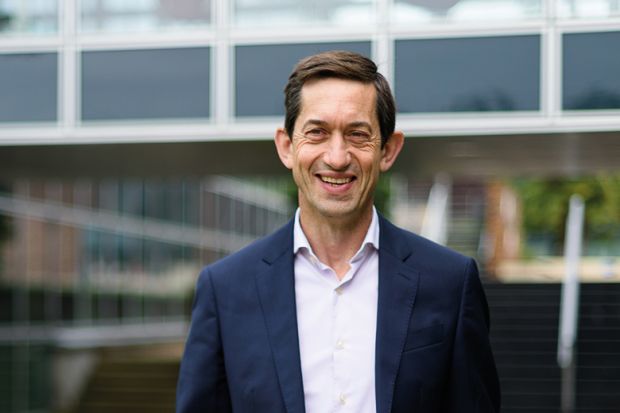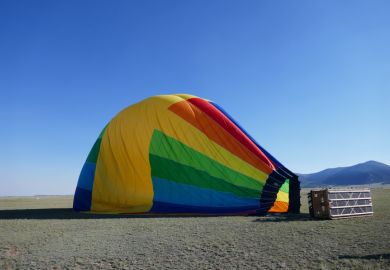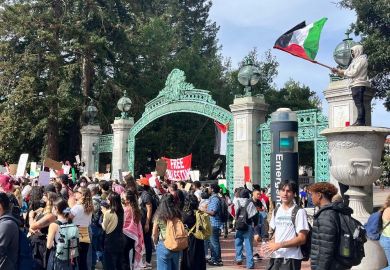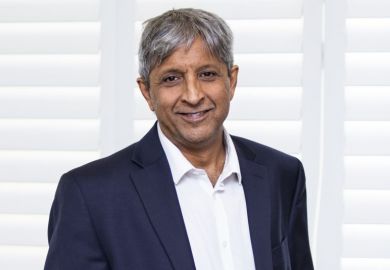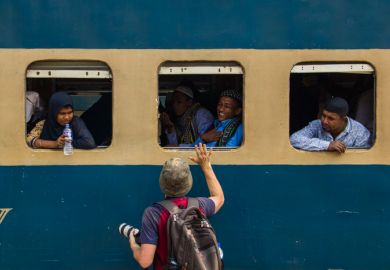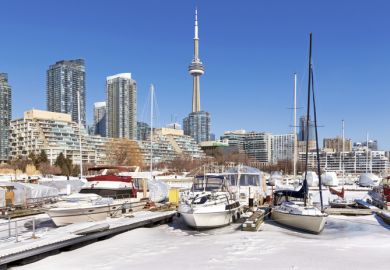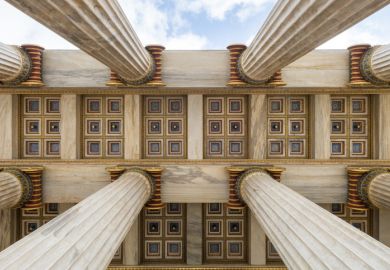Overseeing his first graduations as dean of Insead Business School late last year, Francisco Veloso struck up a conversation with one of the class receiving their MBAs.
As the student was Belgian, Professor Veloso asked how had he come to complete his studies at Insead’s Singaporean campus.
The student replied that it had been a while since he had lived in Belgium, instead basing himself in South Korea, China and other parts of Europe before coming to Singapore.
Most higher education institutions are far more globally diverse than they used to be, but Insead – which bills itself as the “business school for the world” – is still a cut above the rest, catering to students who are, increasingly, citizens of everywhere.
That dynamic is mirrored in the way the school itself works, with its operations spread across its main bases in France, Singapore and Abu Dhabi.
“Many other business schools have hubs or some physical presence internationally, but we are global in terms of our key activities,” Professor Veloso said.
“In Singapore, we have a third of our activity in any way you want to think about it: students, executive education, our faculty. We also have quite significant and growing activity in Abu Dhabi.
“This is really embedded in the fabric and operation of the school. Two of my academic deans are based in Singapore. We really operate with a global platform in the way we are organised.”
For Professor Veloso, who was dean of the Imperial College Business School as the UK government meddled with the terms of international students’ visas, this frees the institution from the whims of any one jurisdiction but, conversely, also makes it even more exposed to the global headwinds.
“We place students in a meaningful way from east to west, so we feel all the reverberations,” he said. “You become very keenly aware of where the world is going, and that is a very interesting thing.”
This position on the world stage can be both positive and negative, as Professor Veloso discovered a few weeks into the job when the 7 October attacks sparked the war in Gaza.
Condemning the initial Hamas violence in a letter to alumni, he wrote that the school was “sickened by the barbaric acts of terror”. But he soon faced a backlash for having failed to mention Palestinian deaths in Israeli bombings, which prompted a second statement that admitted: “My deep compassion for the loss of lives and the humanitarian situation of all civilians affected was not fully conveyed in my previous message.”
The incident has left Professor Veloso questioning what Insead’s role should be when the world is rocked by such seismic events.
“It is very difficult to have a completely rational view of the situation as we see it unfold, and therefore that created some tensions about how what we say and don’t say is interpreted by people,” he said.
“This has prompted us, and I think many other higher education institutions, to reflect on whether we can or should have a public position on these types of things that really depend so much on how words and situations are interpreted.
“Or are we better off making sure that we go back to our mission and think about creating an environment in our own institutions to embrace people who come from all these diverse backgrounds and make them feel they can learn about all the other perspectives and views by being in the cauldron of cultures?
“That can be our way of contributing to the world, more than issuing public statements about situations that perhaps just end up being dissected by groups of people that have a particular lens and interpret what you are trying to say.”
Even the seemingly straightforward question of how many Palestinian and Israeli students Insead enrols is complicated by questions of identity, Professor Veloso said.
What is clear, however, is that neither will be the dominant culture at an institution where “everybody is a minority”.
While there are no hard caps on the number of students from any one country – and India and China still tend to send more students than most because of the sheer size of their populations – every year the school attempts to admit a balance of nationalities.
“We want to create this diverse population, so if you are coming from, say, an African country where we tend to have a lot less representation, we will try to have more due diligence in assessing whether this person has the right characteristics to come, because they will bring a different experience and value to the group, rather than if we have already 100 people from any given country,” he said.
Being global does not, however, preclude the important local work the institutions do, and part of Professor Veloso’s new vision for the school is to ensure that it is more embedded in the areas in which it operates.
This includes a large-scale redevelopment of the campus in Fontainebleau, a town 55km from Paris that is famous for the grand royal chateau that was Insead’s original home.
The challenge for this project, Professor Veloso said, was to create an “amazing learning environment where the students want to come and want to develop their lives, but not one that works as an antagonist between the physical and the digital”.
A reminder, perhaps, that however much institutions transcend borders, it is hard to escape questions of bricks and mortar.
POSTSCRIPT:
Print headline: Global currents challenge ‘world’s business school’
Register to continue
Why register?
- Registration is free and only takes a moment
- Once registered, you can read 3 articles a month
- Sign up for our newsletter
Subscribe
Or subscribe for unlimited access to:
- Unlimited access to news, views, insights & reviews
- Digital editions
- Digital access to THE’s university and college rankings analysis
Already registered or a current subscriber? Login
